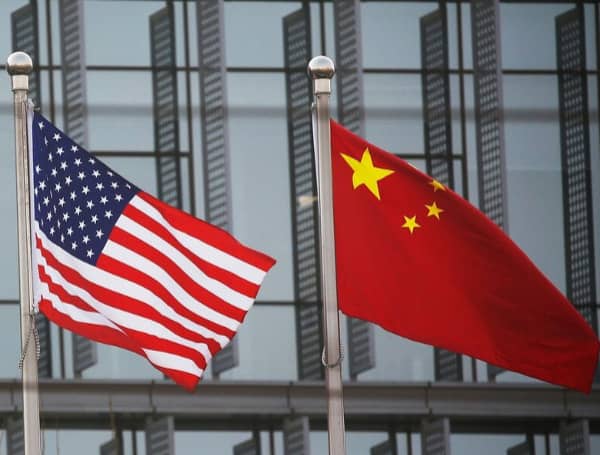The Trump administration has reportedly suspended licenses for U.S. nuclear equipment suppliers to sell to China, a significant escalation in the ongoing trade tensions between the world’s two largest economies. The move, reported by Reuters on Friday, targets parts and equipment used to build nuclear power plants, further tightening export restrictions on Beijing.
According to anonymous sources cited by Reuters, the U.S. Department of Commerce halted these licenses this week. This follows a series of previous U.S. export controls aimed at limiting China’s access to critical goods, including machine tools, chip design software, butane, and aviation equipment, as trade frictions continue to intensify.
READ: Alabama Sen. Tuberville Takes Aim At Education Crisis, Fights To Save Women’s Sports
The reported suspension will directly impact major U.S. nuclear equipment suppliers like Westinghouse and Emerson, potentially disrupting business worth hundreds of millions of dollars.
This development comes after a brief and ultimately unsuccessful attempt at a trade truce. On May 12, the White House announced a 90-day tariff reduction deal with China, intended to create space for a more permanent agreement. However, that deal quickly unraveled, with both sides accusing the other of violating its terms.
President Donald Trump voiced his frustration on Truth Social on May 30, stating, “I made a FAST DEAL with China in order to save them from what I thought was going to be a very bad situation, and I didn’t want to see that happen. Because of this deal, everything quickly stabilized and China got back to business as usual. Everybody was happy! That is the good news!!! The bad news is that China, perhaps not surprisingly to some, HAS TOTALLY VIOLATED ITS AGREEMENT WITH US. So much for being Mr. NICE GUY!”
READ: F-35s To Florida? Sunshine State Lawmakers Push For Stealth Jets At Homestead Base
The Commerce Department confirmed to Reuters in late May that it is reviewing exports of strategically significant items to China, adding that in some cases, “Commerce has suspended existing export licenses or imposed additional license requirements while the review is pending.”
China’s foreign ministry, in a statement to Reuters regarding earlier export restrictions, asserted, “There are no sanctions or pressure that can block the pace of China’s development and progress, no bullying or coercion that can shake China’s determination to achieve self-sufficiency.”
The escalating trade war has seen both sides implement retaliatory measures. In April, China announced its own export controls on several rare earth elements crucial for weapons, cars, and other high-tech products, prompting warnings from U.S. manufacturers about potential disruptions to vital supply chains.
READ: Fauci’s “Missing” Phone Records Found; FBI Launches COVID-Era Communications Probe
Despite the recent escalation, a glimmer of hope for de-escalation emerged on Thursday when President Trump and Chinese President Xi Jinping spoke on the phone. Trump described the call as having “resulted in a very positive conclusion for both Countries.”
Following this, the president announced on Friday that Treasury Secretary Scott Bessent, Secretary of Commerce Howard Lutnick, and U.S. Trade Representative Jamieson Greer will meet with Chinese representatives in London on Monday for renewed trade discussions.
Please make a small donation to the Tampa Free Press to help sustain independent journalism. Your contribution enables us to continue delivering high-quality, local, and national news coverage.
Connect with us: Follow the Tampa Free Press on Facebook and Twitter for breaking news and updates.
Sign up: Subscribe to our free newsletter for a curated selection of top stories delivered straight to your inbox.
